Abstract
Providing adequate counseling of patients identified in genetic screening programs is a major responsibility and expense. Adults in a health maintenance organization, unselected for interest, were screened for beta-thalassemia trait as part of preventive health care. Counseling was provided by either a trained physician (conventional counseling) or by a videotape containing the same information followed by an opportunity to question a trained physician (programmed counseling). Immediately before and after counseling, knowledge of thalassemia, knowledge of genetics, and mood change were assessed by questionnaire. Comparable mood changes and similar learning about thalassemia and genetics occurred with both counseling methods. Thus, as judged by immediate effects on knowledge and mood, videotaped instruction can greatly reduce professional time required for genetic counseling and facilitate the incorporation of genetic screening into primary health care.
Full text
PDF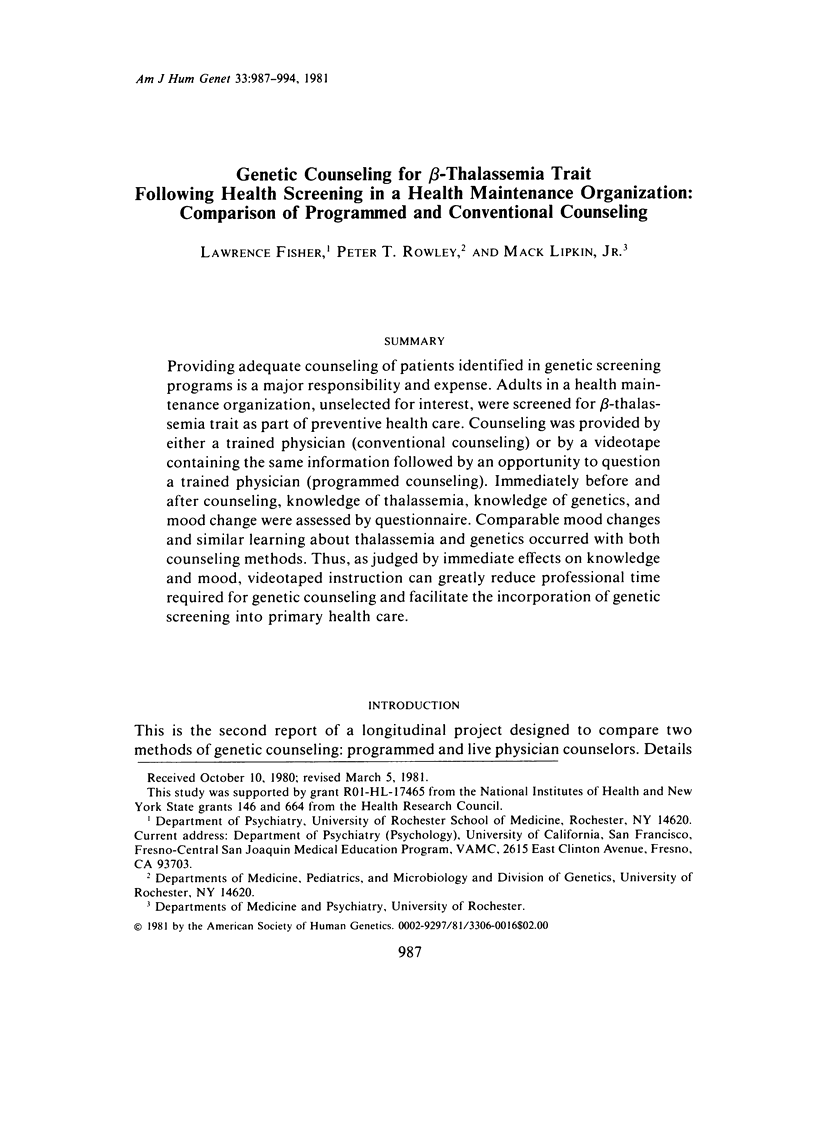
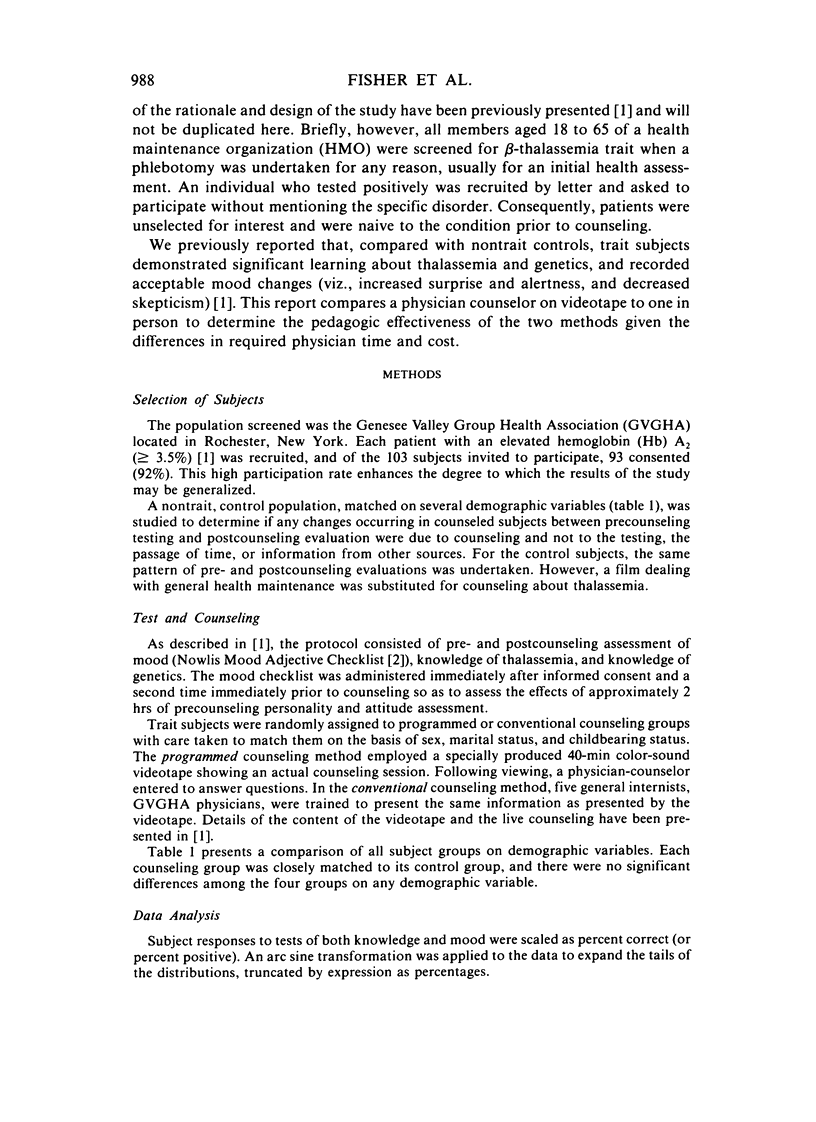
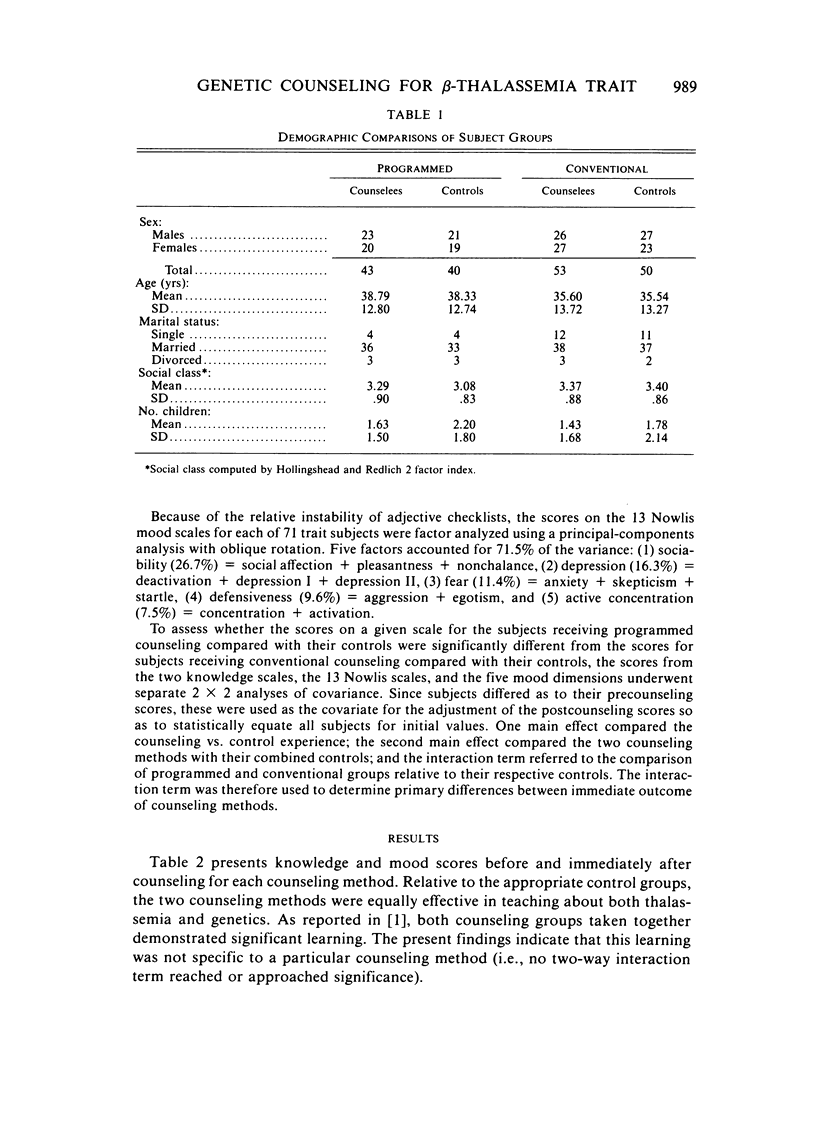
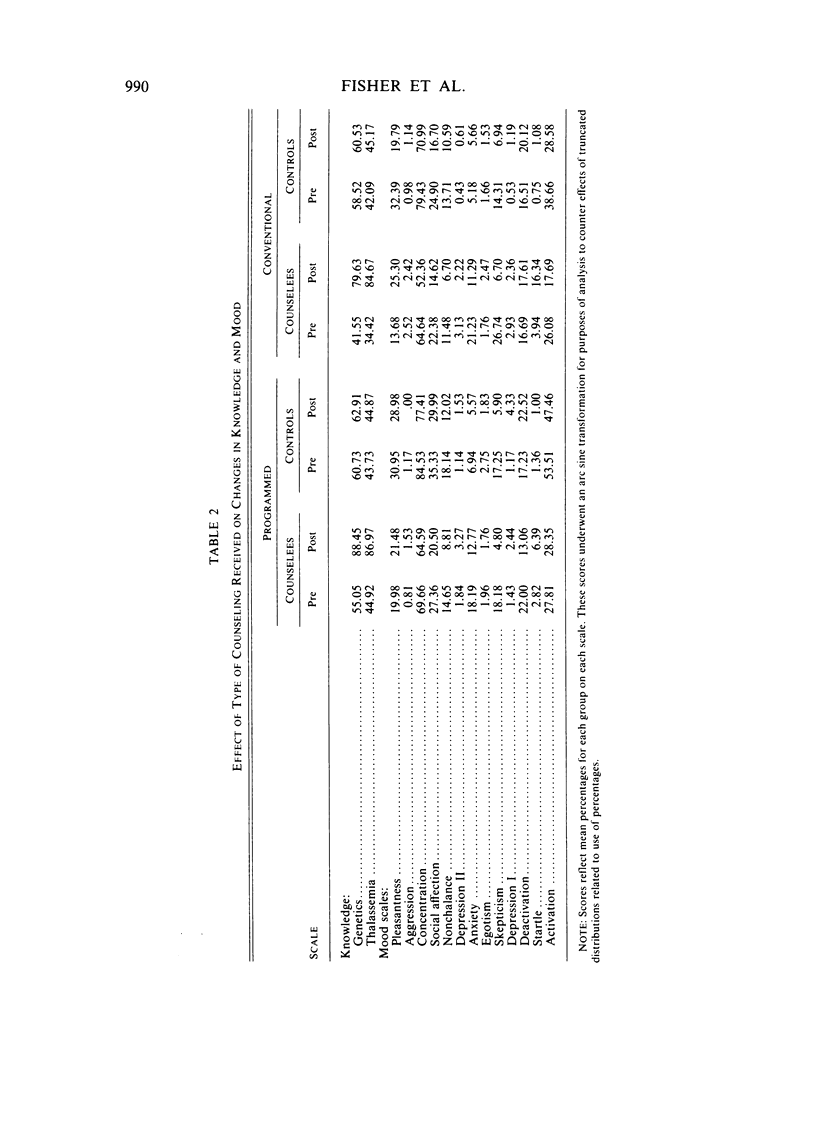
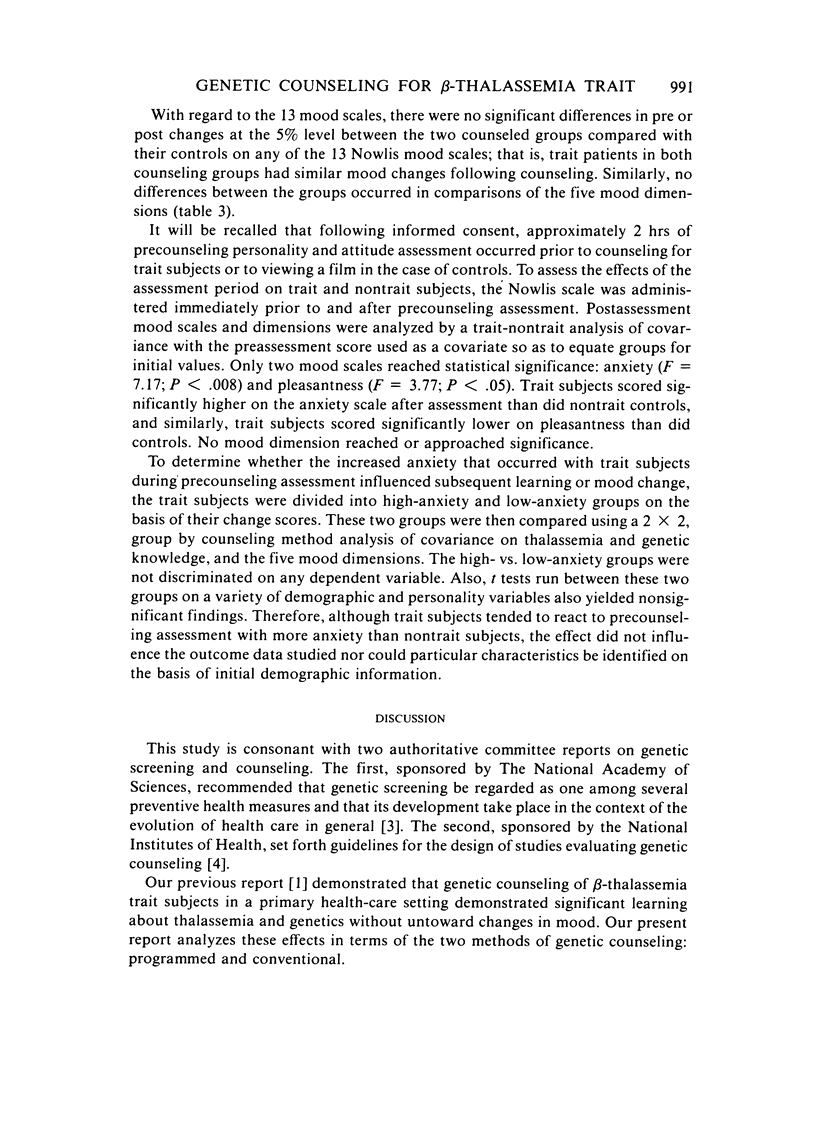
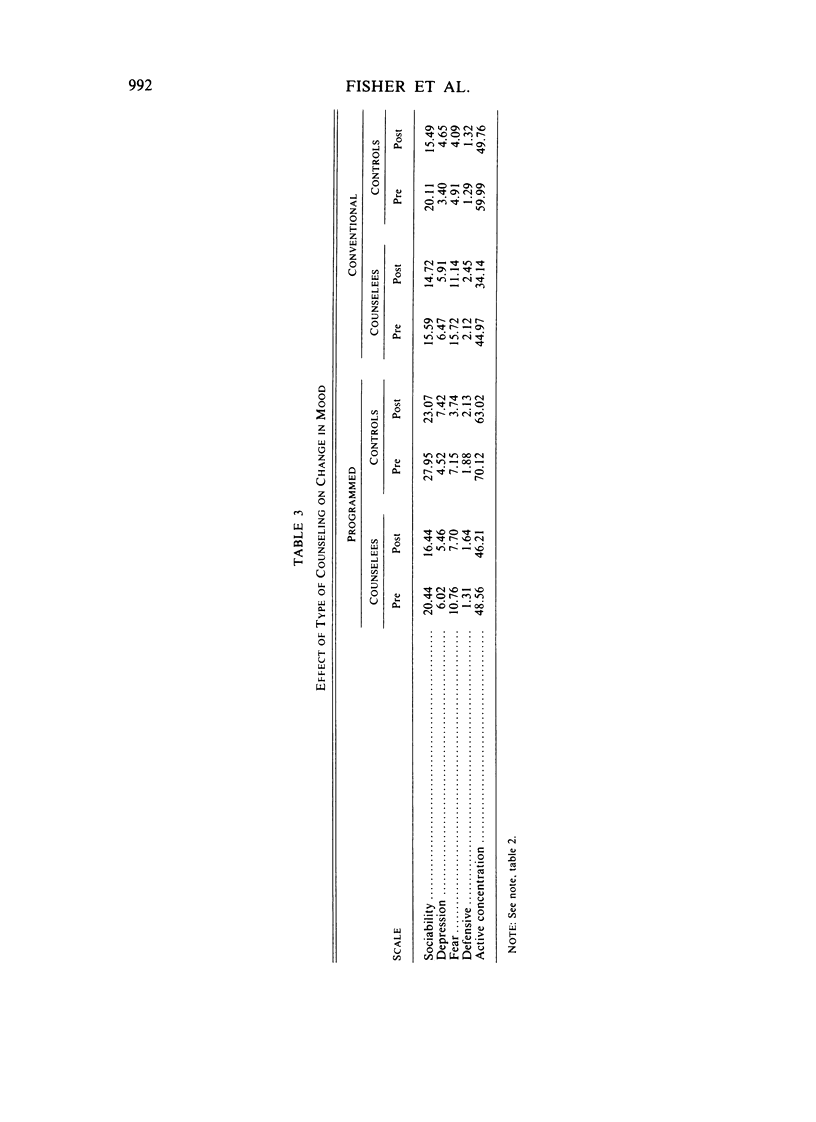
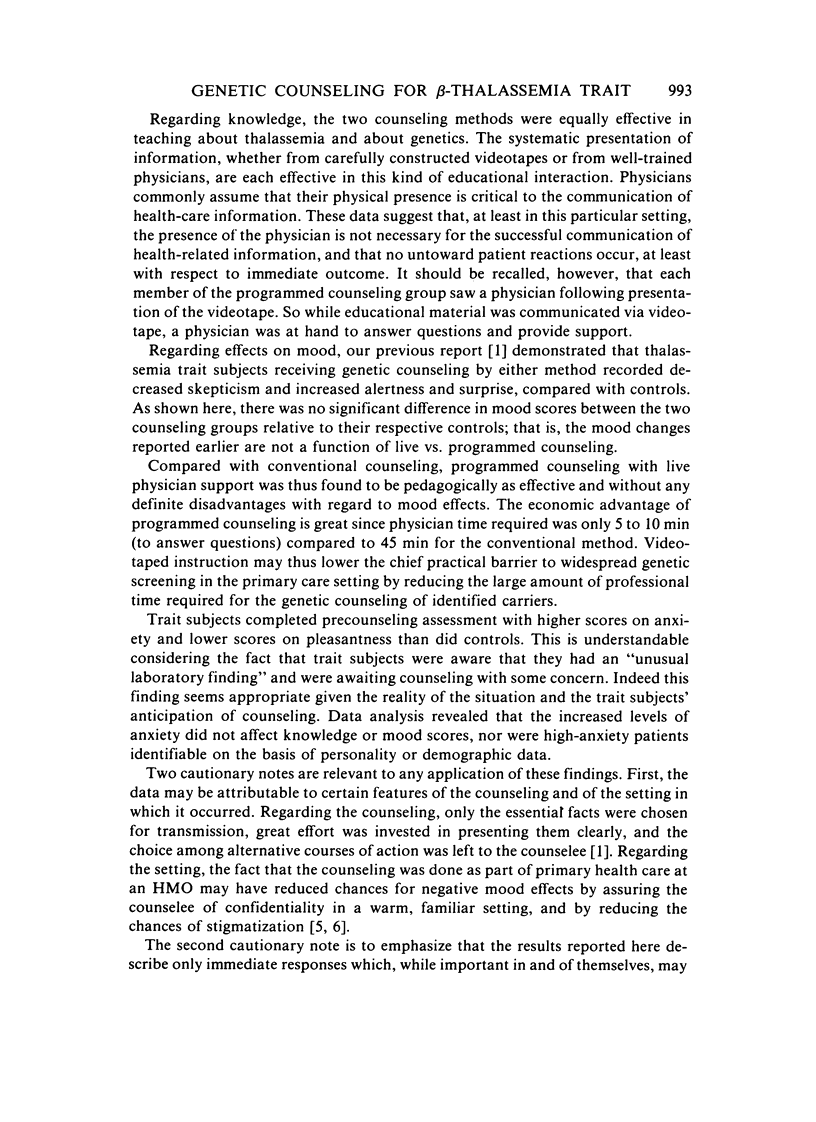
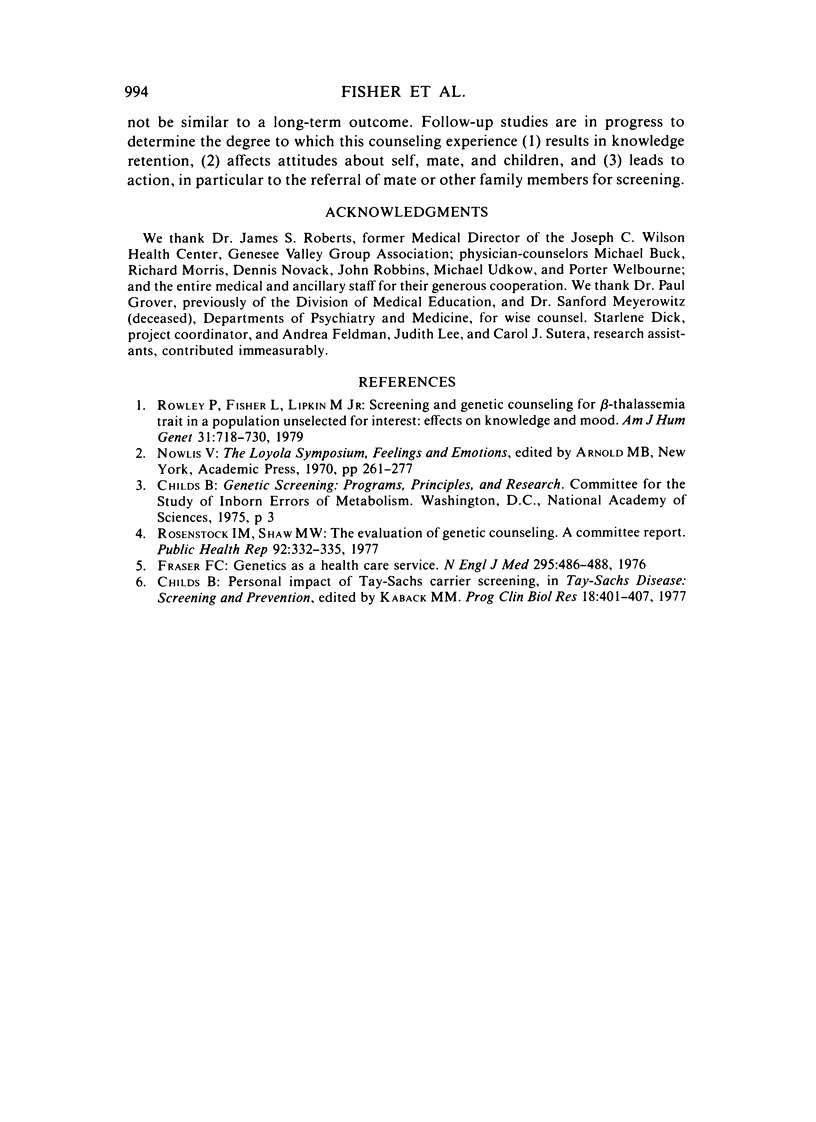
Selected References
These references are in PubMed. This may not be the complete list of references from this article.
- Childs B. The personal impact of Tay-Sachs carrier screening. Prog Clin Biol Res. 1977;18:401–407. [PubMed] [Google Scholar]
- Fraser F. C. Genetics as a health-care service. N Engl J Med. 1976 Aug 26;295(9):486–488. doi: 10.1056/NEJM197608262950906. [DOI] [PubMed] [Google Scholar]
- Rosenstock I. M. The evaluation of genetic counseling. A committee report. Public Health Rep. 1977 Jul-Aug;92(4):332–335. [PMC free article] [PubMed] [Google Scholar]
- Rowley P. T., Fisher L., Lipkin M., Jr Screening and genetic counseling for beta-thalassemia trait in a population unselected for interest: effects on knowledge and mood. Am J Hum Genet. 1979 Nov;31(6):718–730. [PMC free article] [PubMed] [Google Scholar]


